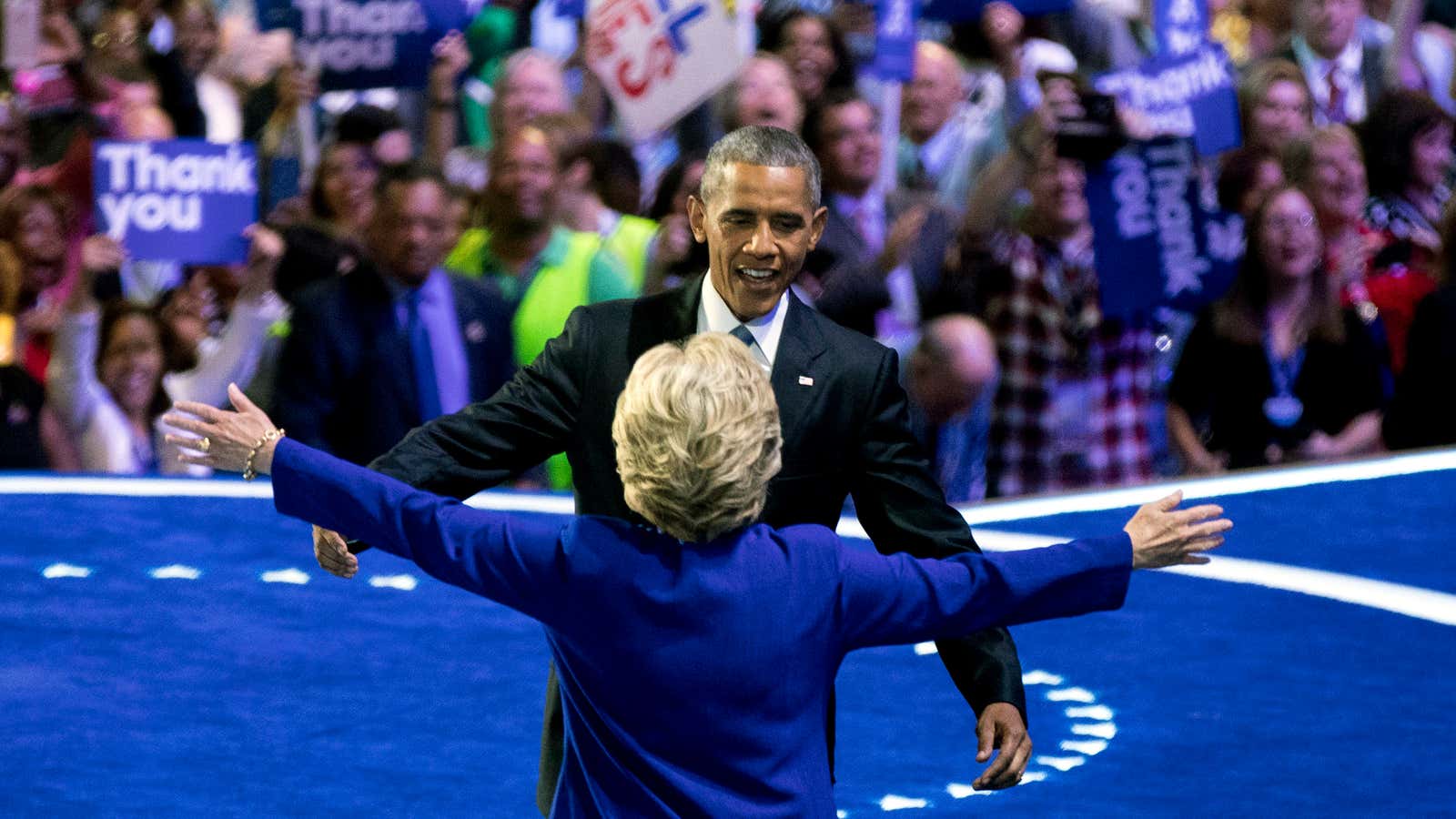In the summer of Trump, it can be hard to recall that Republicans had something of a built-in advantage during this election. But it’s slipping away now, and not only because of their nominee’s recent missteps.
Consider the US jobs report for July, which blew all the forecasts out of the water. With 255,000 jobs created, a low 4.9% unemployment rate, and upward revisions to previous soft reports, it’s clear the US labor market is in a decent spot.
Politically speaking, this is bad news for Donald Trump and his Republican party as they challenge Hillary Clinton and the Democrats in the fall, and not just because Trump’s gloom and doom contrasts so strangely with positive economic news. Political scientists who study elections have repeatedly found that economic fundamentals can explain a lot about the outcome of US presidential elections.
One simple approach developed Larry Bartels, a political scientist at Vanderbilt University, finds that changes in disposable income in the two quarters before an election correlate strongly with the incumbent party’s margin of victory. It’s not a forecasting tool, since the final revised data won’t be available until after the election. But it is a useful frame for thinking things through as we approach November.
In April, we looked at Bartel’s formula based on the most recent data at the time and said that if the election were held then, the Democratic candidate would have about a one percentage point advantage. Today, based on disposable income figures for the first two quarters of this year, it looks like Republican should would have a baseline one point or larger advantage were the election held today.
But a wave of post-convention polling has shown Clinton stretching out a large lead on Trump. The polls are likely to tighten as the election approaches, but Trump doesn’t look like someone with a built-in advantage. At the most extreme, a recent poll in Georgia—which hasn’t backed a Democrat for president since Bill Clinton in 1992—shows Trump’s rival with a four-point advantage. That’s a brief a reminder that campaigns do matter at the margins, and the margins get bigger the more you disregard the campaigning.
But even the fundamentals may be slipping away from Trump. This is one of the most important numbers from today’s job report: Average hourly earnings rose 8 cents in July, and have risen 2.6% so far on the year. It’s what you would expect from a tight job market. And if it continues, it will boost people’s pocket-books. One worry for Democrats watching the fundamentals is that the monthly disposable income numbers so far in the third quarter haven’t been strong. But these jobs numbers suggest that revisions or improvements could be coming.
Another factor here is how the economy has played into the popularity of the current White House occupant. Barack Obama is the first two-term president in decades to make a concerted push to bring his successor into office. If today’s jobs report had matched the anemic numbers from the last two months, he might not have had the ammunition to do that in such an effective way. Now, Trump, already beleaguered, is now running against two of the savviest politicians of the last several decades.
Put another way, one key talking point at the Republican National Convention was “No Third Term” for Obama, highlighting the similarities between the two Democrats. On a day like today, that looks like a losing argument.
